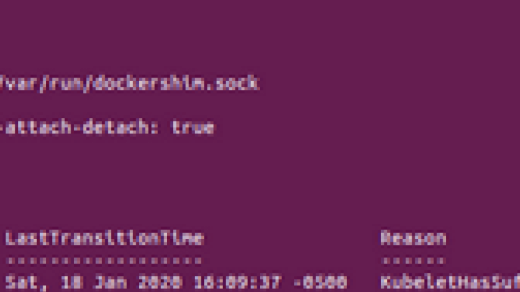Welcome to the Cybersecurity Certification Roadmap Guide – your ultimate companion on the journey to becoming a certified cybersecurity professional. In this article, we will navigate through the intricate world of cybersecurity certifications, shedding light on the various paths and qualifications that can propel you towards a successful career in safeguarding the digital realm.
Next Steps in the Cybersecurity Certification Journey
Once you have completed your foundational cybersecurity certifications, the next step in your cybersecurity certification journey is to consider Linux training. Linux is a widely used operating system in the cybersecurity field, and having a strong understanding of it can greatly enhance your skills and job prospects.
There are several Linux certifications available, such as CompTIA Linux+, LPIC-1, and Red Hat Certified System Administrator (RHCSA). These certifications will validate your knowledge and expertise in Linux administration, which is a valuable skill in the cybersecurity industry.
By pursuing Linux training and certifications, you can expand your knowledge and become proficient in this important operating system. This will not only make you a more well-rounded cybersecurity professional, but it will also open up new career opportunities.
Remember to refer to the cybersecurity certification roadmap and progression chart to help guide your training and certification choices. Consider the certifications that align with your goals and interests, and don’t be afraid to seek additional resources and training to enhance your skills.
Keep in mind that cybersecurity is an ever-evolving field, so continuous learning and staying up-to-date with the latest industry trends and technologies is crucial. Consider joining cybersecurity forums and initiatives, such as the Cyber Security Forum Initiative, to connect with other professionals and stay informed about the latest developments in the field.

Choosing the Right Cybersecurity Certification Path
Choosing the right cybersecurity certification path can be daunting. To help you navigate this process, we have created a concise roadmap guide. Here are a few steps to get you started:
1. Assess your goals and interests in the cybersecurity field. Determine the specific area you want to specialize in, such as network security or ethical hacking.
2. Research different certification programs and their requirements. Look into well-known organizations like CompTIA, CISSP, and Offensive Security.
3. Use online resources and forums like the Cyber Security Forum Initiative to gather information and insights from professionals in the field.
4. Consider the time and effort required for each certification. Some certifications may require more extensive training and experience.
5. Create a progression chart to visualize your certification path and track your progress.
In-Demand Cybersecurity Certifications for Job Seekers
In-Demand Cybersecurity Certifications for Job Seekers
Obtaining relevant certifications in the field of cybersecurity can greatly enhance your job prospects. Here is a guide to some of the most in-demand certifications:
| Certification | Description | Provider |
|---|---|---|
| CompTIA Security+ | A vendor-neutral certification that validates foundational cybersecurity knowledge and skills. | CompTIA |
| Certified Information Systems Security Professional (CISSP) | A globally recognized certification that demonstrates expertise in designing, implementing, and managing cybersecurity programs. | International Information System Security Certification Consortium (ISC)² |
| Certified Ethical Hacker (CEH) | A certification for individuals who want to understand and prevent malicious hacking activities. | EC-Council |
| GIAC Security Essentials (GSEC) | A certification that covers a wide range of cybersecurity topics, including risk management, network security, and incident response. | Global Information Assurance Certification (GIAC) |
| Certified Information Security Manager (CISM) | A certification for professionals involved in managing enterprise information security programs. | ISACA |
Exploring the CISSP Path and Other Recognized Certifications
The CISSP Path and Other Recognized Certifications offer a clear roadmap for those looking to enter the field of cybersecurity. These certifications, such as CISSP, Offensive Security, and CompTIA, are highly respected and can greatly enhance your career prospects. To start your journey, consider taking Linux training, as it is a valuable skill in the cybersecurity industry. Additionally, explore resources and organizations that offer certification programs to help you on your way.
Must-visit websites like @J @ and @Ã @ provide valuable information and training materials. Don’t forget to also develop your scripting skills, such as PowerShell scripting, as it is a powerful tool in cybersecurity. Stay motivated and committed to your goals, and you’ll be on the path to success in no time.
Navigating the GSEC Path and Other Prominent Certifications
When it comes to cybersecurity certifications, the GSEC path is a popular choice. However, there are other prominent certifications that you should consider as well.
To start your journey, it’s important to have a roadmap. The cybersecurity training roadmap can help you understand the different certifications available and the steps you need to take to achieve them.
One valuable resource is the Comptia certification, which covers a wide range of cybersecurity topics. Additionally, Linux training is highly recommended, as it provides a solid foundation for understanding security concepts.
If you’re interested in scripting, PowerShell scripting is a must-visit resource. It not only enhances your skills but also allows you to automate tasks and improve efficiency.
Entry-Level Steps to Start a Career in Cybersecurity
To start a career in cybersecurity, follow these entry-level steps:
1. Begin with Linux training. Linux is widely used in cybersecurity and understanding its fundamentals will give you a strong foundation.
2. Familiarize yourself with coding and scripting languages like Python and PowerShell. These skills are essential for analyzing and writing secure code.
3. Learn about networking and protocols. Understanding how networks operate and the vulnerabilities associated with them is crucial in cybersecurity.
4. Gain hands-on experience by practicing in a virtual lab environment. This will allow you to apply your knowledge and develop practical skills.
5. Obtain industry-recognized certifications such as CompTIA Security+ or Certified Information Systems Security Professional (CISSP). These certifications validate your expertise and make you more marketable to employers.


